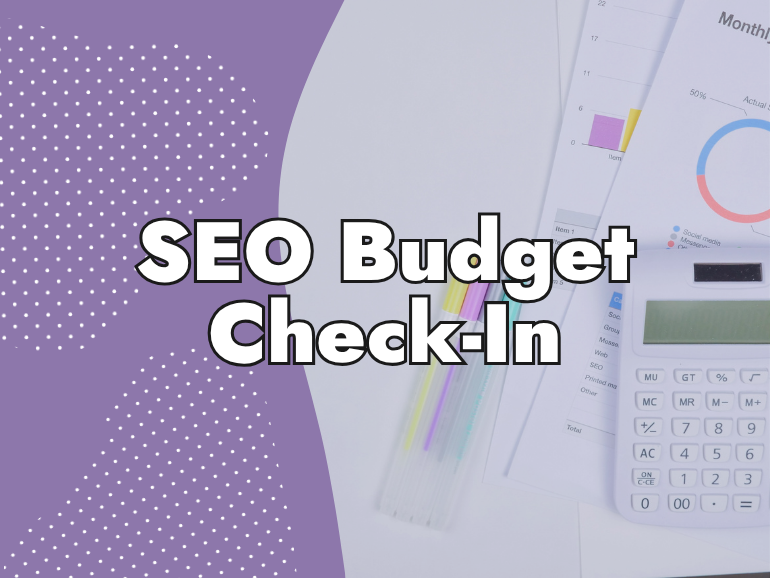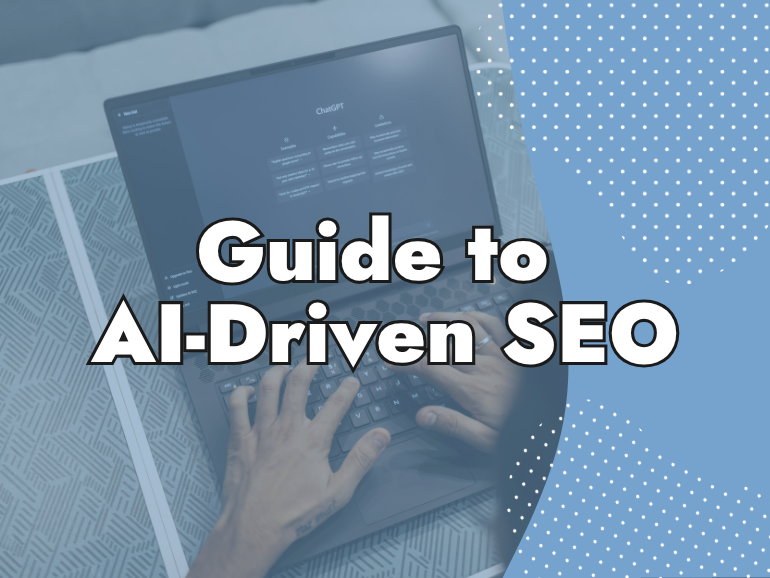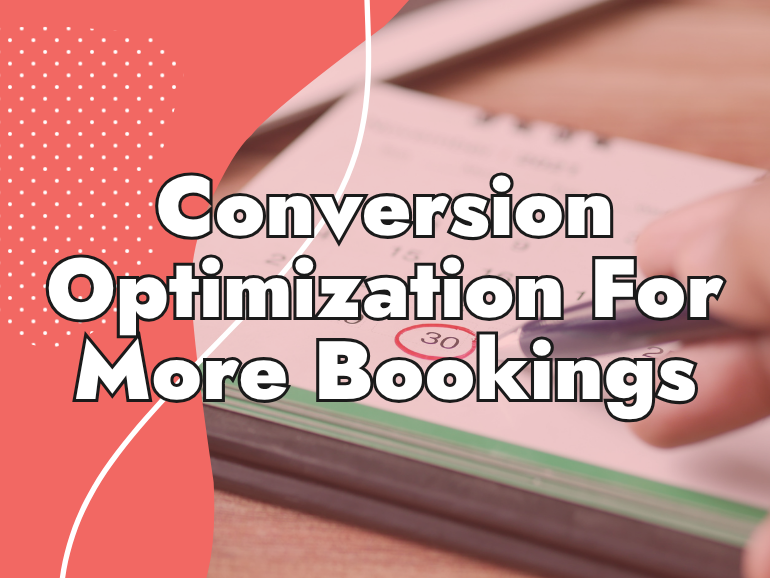Is Your SEO Budget Good Enough for Your Goals?
Is your SEO budget actually working for you? Or are you just spending each month because it’s what you think you should do? This article helps you evaluate whether you’re spending enough, too much, or just right based on your goals, competition, and growth stage. Get practical tips to make your SEO investment go further.
Written by Keiran Griffiths
Last updated June 20, 2025 • First published January 24, 2023

COVID-19 changed not only the world but also the online world, prompting a lot of businesses to seriously re-evaluate their SEO budget.
Businesses need to be where their customers are. Most, across all age categories, are now shopping online for what they need so a solid SEO strategy is vital to your online success.
Search Engine Optimization (SEO) has also changed rapidly. This is partially due to the pandemic but also a testament to our increasingly active digital lives.
Businesses and digital marketers alike are now looking at the new year in anticipation of the challenges their SEO will face. Everyone wants to be prepared, and everyone wants to succeed. But not everyone will necessarily adjust their SEO budget to get the results they want.
In this blog our SEO experts will go over what you can expect from digital marketing and what sort of SEO budget you might need to be well prepared. Now is not the time to be conservative. Your rankings, and your business, are counting on it.
Why Budgeting for SEO Matters
If your business is not yet online, you might want to seriously consider it.
According to Statista, by 2026, North America alone will have 448.55 million daily Internet Users.
LIKE WHAT YOU’RE READING?
If these articles are helpful,
imagine what our team
can do for you!


More Traffic. Leads. Business.
I want to show you how SEO can grow your business in ways you haven’t seen before.
More Traffic. Leads. Growth.

I want to show you how SEO can grow your business in ways you haven’t seen before.
Whether you’re selling consumer goods or you are a service-based business, the fact remains that potential customers are searching online to find you.
And you have have a website, you also need to have an SEO Budget.
SEO (Search Engine Optimization) is all about making your website more easily discoverable on search engines like Google. Without it, no one will find you. While many businesses understand that SEO is important, not everyone understands how to go about it. That’s okay. You’re busy enough. That’s what SEO professionals are for.
Investing in ongoing SEO will help you to reach more customers, build online trust and credibility, and grow your business.
Whether you’re outsourcing to an experienced digital marketing agency like 1st on the List or looking to allot a budget for your in-house team, there is a lot to consider when deciding on an effective SEO budget.
We’re going to go into that, we promise, but first, we need to anticipate the challenges that SEO will face in the coming year.
Trending SEO Challenges
Competition for Talent
There’s a big difference between SEO done right and SEO that wastes time and money. Qualified and experienced professionals are hard to come by, and when you find them, you can bet that their rates will reflect what they bring to the table.
The COVID-19 pandemic saw widespread adoption of remote work among professionals.
Suddenly, your city of residence was no longer the only pool of jobs to pick from. Experienced talent began jumping ship to companies offering permanent remote work options for better pay. Others decided to leave employment altogether and work for themselves.
If you’re looking for an all-star in-house SEO team, you’re facing a lot of competition to snare the best talent. If you’re outsourcing to a remote firm, know that their rates will reflect their talent retention strategy. In short, you need a decent SEO budget and quality isn’t cheap.
Machine Learning and AI
If the future is digital, then the tools of the future are machines.
AI and machine learning have crept their way into every discipline and industry. In fact, most SEO experts suspect that Google’s algorithm updates are at least 80% generated by AI!
AI art generators are also now part of the controversy. They are taking business away from digital artists.
There’s even a fear that AI generated content will replace human written blog articles and product descriptions. Be forewarned however.
There are still telltale signs that indicate if a human was involved in the writing or not.
Recently, Google added “Experience” to its E-A-T assessment of websites. E-A-T stands for Expertise, Authoritativeness, and Trustworthiness…which SEO professionals been concentrating on improving for several years now.
I think the “Experience” that Google has added to its E-A-T criteria (making it E-E-A-T) is directly related to the recent influx of AI generated content on the web.
By “experience,” Google is basically saying they look for opinions in site content…a personal approach that says you base what you are writing about on your past experience…here is what happened, this is what “you” did to deal with the issues. This is something that AI cannot do…at least not yet.
AI writing tools, for example, still cannot produce original work.
Sure, you can get a decently written blog post that might be 70-80% there. But, it will be a piecemeal mashup of words and phrases already on the Internet, simply re-written to be 100% uniquely stated. It still needs to be revised to not only add a more human element but also to optimize the content for Google, which would be part of your SEO budget.
Does AI content include SEO? No. Poorly written content, whether by a human or machine, looks unprofessional and diminishes trust in your brand.
As far as search engines go, their algorithms are only getting more sophisticated thanks to AI and are not easily fooled…even by AI generated content.
Google is perfecting its ability to find the most relevant answer to a user’s question.
Just take a look at Google Direct Answers or Google Knowledge Panels. This has led to a considerable increase in zero-click searches, which is what we’ll go into next…
Zero-Click Searches
A zero-click search does not result in a user clicking through to a website. This happens when Google provides the answer to the question directly, without requiring a user to leave the search results page. That means that even if your website is the number 1 answer on Google, nobody is going there.
Even worse, data has shown that zero-click is on the rise, with 34.4% of desktop searches and 62.5% of mobile searches resulting in zero-clicks (SEJ). With Google’s algorithms wreaking havoc on your website’s organic traffic, it’s doubly important to build a well-rounded SEO strategy to balance it out.
What Do You Need For Good SEO?
So how do you combat the challenges to SEO moving forward. No matter your industry, business size, or SEO budget, you must ensure these areas on your website are up to snuff.
Information Architecture
- Crawlable and easily indexed by Search Engines.
- Great UX design with particular attention to Core Web Vitals like page load speed and responsiveness.
- Mobile optimized or mobile first optimized if possible.
- Consider Google’s Webmaster Guidelines for SEO best practices.
Backlinks
- Remember to utilize E-A-T & trusted sources to provide value and build trust.
- Must be natural and relevant. Avoid schemes and quick fixes like the plague.
- Quality over quantity – a smaller number of relevant high-trust/high-authority links will outperform a large number of low-quality links.
Content
- Create original SEO content that provides value.
- Target keywords and keyword phrases that match search queries.
- Don’t keyword stuff.
- Build content to satisfy user intent.
Is Your SEO Budget Good Enough?
Your SEO budget shouldn’t be half hazard but built according to your business, industry, and niche. Think about how you are positioned in relation to your competitors and how fast you want to progress.
Do you feel your monthly SEO budget is fine as it is? Before you dust off your hands and call it a day, ask yourself these questions:
- Is your website ranking well compared to your competition?
- Is your website mobile optimized?
- Do your web pages load in 2 seconds or less?
- Does your website meet visitors’ expectations?
If you answered anything other than “yes,” you should probably be investing more into your SEO budget plan.
How Much Should Your Spend On SEO?
There is no single cookie-cutter price for good SEO. However, SEO tends to be one of those fields where you get what you pay for.
Generally, a small to medium sized business can expect to pay between $1,000 – $5,000+ per month for a professionally managed SEO campaign, with averages hovering around $1,500 – $2,000 per month. Of course, if you’re aiming to rank for national terms or you are highly within a very competitive niche, you can expect to spend a lot more with a robust monthly budget looking more like $2,500 – $50,000+.
Remember that SEO is a lot of work, and you should always be wary when you see agencies or individuals promising big results for a tiny price tag. The cost of cheap SEO can be much more than a wasted budget, it can come at the wrath of Google, and if that doesn’t scare you – it should.
Evoking a Google penalty will virtually wipe out a website’s visibility on the web. Goodbye rankings, goodbye first page. It will be like your website never existed.
As a business owner, you are responsible for any SEO work performed on your site. Shady SEO just isn’t worth it. No matter how much money it promises to save, it will cost you more in damages in the long run.
The right SEO budget is one you can afford and sustain for a minimum of 6-12 months. Set goals with measurable results – but give it time to work.
Quality SEO isn’t a viral TikTok trend, and it’s not an overnight success story. It can take your business 4-12 months to start reaping the benefits of SEO improvements, but we can promise you this – the wait is worth it.
Want To Make The Most Of Your SEO Budget?
Our 1st on the List team is here to help with expert advice and flexible SEO package options.
Contact us online or call us toll-free at 1-888-262-6687 to set up a consultation to assess your needs and SEO goals.
Keiran Griffiths
Keiran Griffiths is the President & Managing Director at 1st on the List. He works exclusively out of the Abbotsford head office and has extensive experience helping small and big brands grow their business. His background is in restaurant and hospitality management as well as business development (he started his own property management company in 2014). Up for any challenge, Keiran works with clients to assess their budget and investment capabilities and come up with a marketing solution that will earn them the biggest bang for their buck.
Don’t miss out – get newest posts straight to your inbox!
OTHER ARTICLES WE THINK YOU’LL ENJOY
Partner With Us. Get More Leads.
Stop trying to do it all on your own – reach out to our team and we can discuss marketing strategies that are best suited for your business!
[NO HASSLE, NO PRESSURE, NO WORRIES – JUST MEANINGFUL INSIGHTS]








